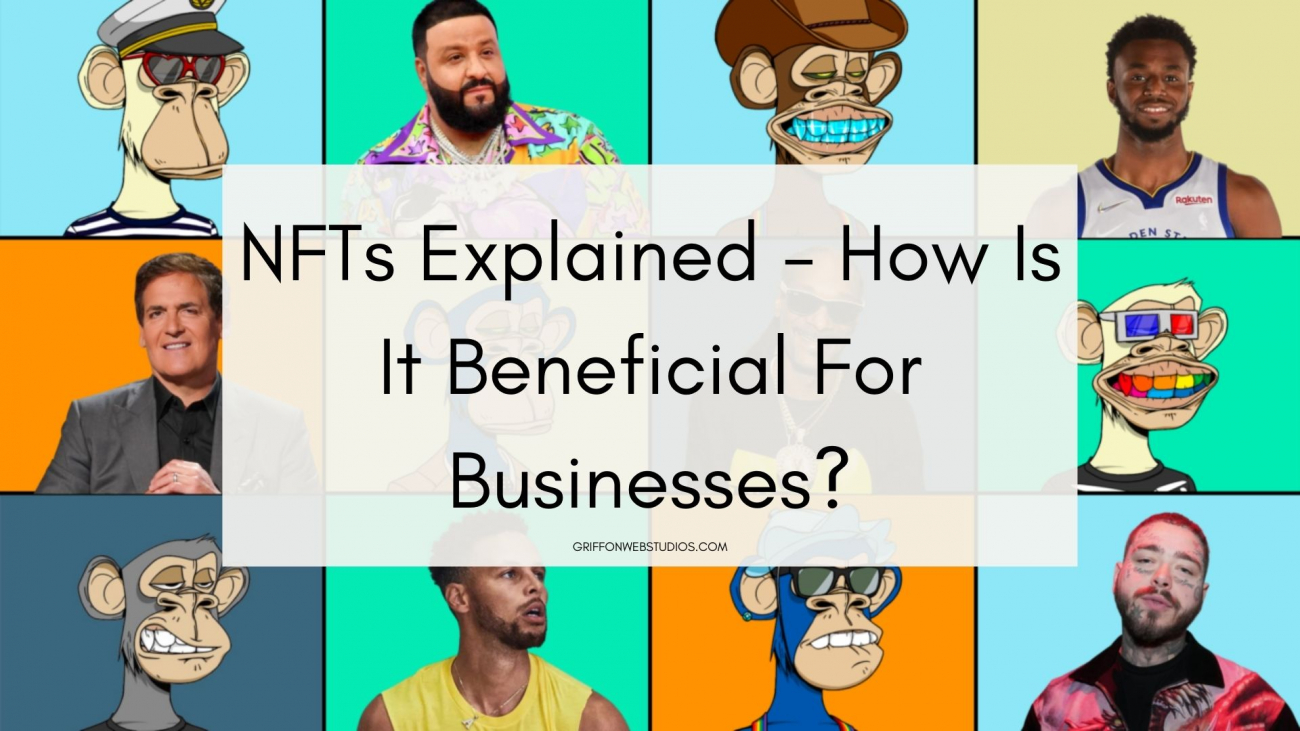It is impossible to read any technology news or financial article and not have the phrase NFT come across at some point. What may have started as a trend a couple of years ago has exploded into a new realm of importance thanks to the proliferation of cryptocurrency and the Metaverse name change from Facebook. Now, if you want to stay current with modern business trends, you need to understand the ins and outs of NFTs for businesses.
What are NFTs?
NFT stands for a non-fungible token, which is a fancy term for something that is one of a kind. Think of it like this: a dollar bill can be traded for another dollar bill; in fact, that is what our economy is based on. This is a fungible token, an item that can be exchanged for exactly the same thing.
An NFT is one of a kind. It is like owning a Babe Ruth baseball card signed by The Babe and attached to a ticket for a specific seat for his last game. This is a one-of-a-kind package. There may be similar items, but nothing matching that exact thing – thus non-fungible.
How do NFTs Work?
Most NFTs are part of the Ethereum blockchain. This gets technical quick, but the idea is that Ethereum is like Bitcoin. It is a cryptocurrency built using a specific ledger of transactions supported by algorithmic equations (i.e., the blockchain). Users post, buy, sell, and trade NFTs in marketplaces supported by this technology and use the blockchain as evidence to verify they own the NFT in question. Kind of like authentication for the Babe Ruth baseball card, but in this case, the blockchain is the expert giving the assessment and not some random pawn shop owner.
NFTs can be anything as long as you have a proper right to the creation. You can draw your own funny-looking cat, use a snippet of audio, video, or photo to create an NFT. They are a way to make money, and that is where the hype comes into play, especially over the past years during Covid 19.
So many artists, musicians, and trading houses have been stuck at home are have been incredibly happy to join in the rush to buy and sell NFTs. That is why you see some celebrities and well-known artists suddenly making millions from selling a single NFT. Consumers are willing to pay a lot of money for an original digital creation that they can lay claim to from now to eternity. Just like owning a Picasso gains in value over time, so will owning NFTs.
What About NFTs for Businesses?
Now for the nitty-gritty. How can NFTs benefit your business operations? For only a couple hundred dollars, your brand can mint and sell a series of NFTs based on your logo, catchphrases, mascots, and other related features that your audience loves. Loyal customers who want to enjoy a Starbucks coffee every day are willing to pay a ton of money for the NFT rights to the coffee cup’s official logo or digital art.
This is essentially just another avenue for growing revenue as a business. Disney is an excellent example of this new trend. They periodically release a set of NFTs related to Star Wars, The Simpsons, or their traditional Fab Five (Mickey, Minnie, Donald, Pluto, Goofy). From Luke Skywalker to the funny-looking two-legged droid in the latest release of The Book of Boba Fett on Disney Plus, each character has value as a digital piece of art that can be sold for thousands to millions of dollars.
NFTs provide a direct pathway to a younger audience that can be attracted to the idea of the Metaverse and blockchain-related goods/services. Securing your own brand’s digital assets in preparation for a future when complete customer interactions can be done via an avatar in the immersive virtual space of the Metaverse is not a whacky idea, but a valid plan for the future. There is a good chance we will see complete worlds being launched and developed for people to work, live, and play all from the convenience of their living room couch and an Oculus Rift or similar VR device.
The writing is already on the digital wall. When you have major brands like the NBA, NFL, Nike, Disney, Marvel, and more leading the charge for adopting NFTs into daily use, you may want to pay attention.
How Does a Business Sell NFTs?
NFTs for businesses is about the same as they are for individuals. You start by selecting a marketplace appropriate for your brand. The more popular ones include OpenSea, Axie Marketplace, Rarible, SuperRare, and Mintable.
Once your brand has signed up and created an account, you’ll need to “mint” your NFT. This means turning your digital file into a crypto collectible available on the Ethereum blockchain. Most marketplaces include a step-by-step guide to get you started on minting your first NFT.
Finally, you need to fund your NFT using a cryptocurrency wallet. This is giving real value to your digital asset. Again, read the fine print of the marketplace you’re using, and they’ll tell you which wallet to use and how much USD you’ll need to convert to mint your NFT.
After all that is complete, you’ll be allowed to list your NFT for sale. This will include “gas fees,” which are network fees for recording the transactions.
Before you launch, be sure to use Twitter, Reddit, and Instagram to blast your following with the details of the expected sale. The more upfront marketing you can do before the actual sale, the more the value of the NFT will grow and the higher your ROI.
Where to Get Started
This whole NFTs for businesses process may seem overwhelming, but it is more of a conceptual problem than a physical one. Pick any of the marketplaces we’ve listed, and you’ll find all the info needed to succeed in the NFT world.
If you are looking for more bespoke help, try our experts at Griffon Webstudios. We have the experience and technical knowledge to transform your brand, original art, or other digital assets into viable NFTs for listing. Reach out to our contact page today to schedule a consultation with our experts.


